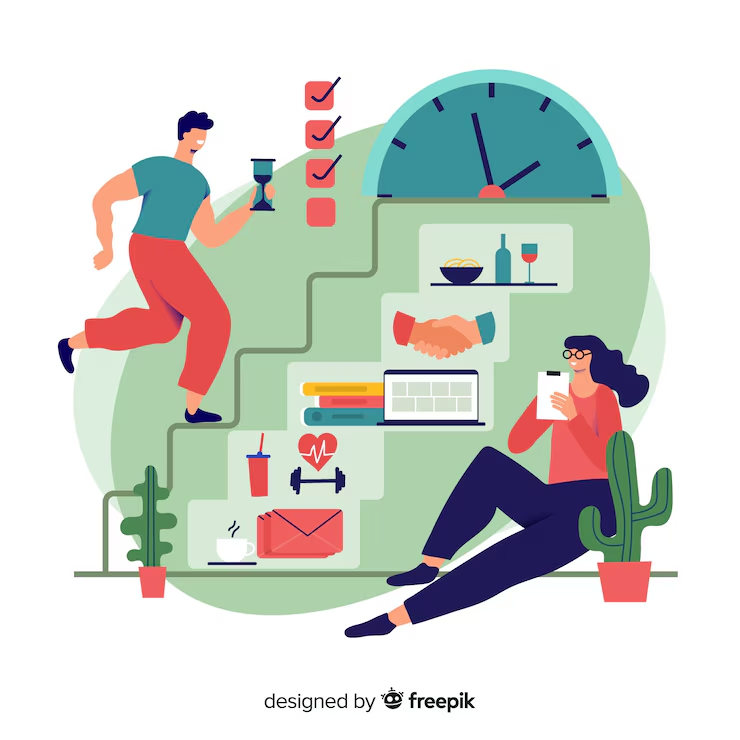The word “motiontechno” might sound futuristic, but it perfectly captures the pace and spirit of our world today. From self-driving cars to voice assistants and predictive shopping apps, artificial intelligence (AI) is no longer science fiction—it’s our everyday reality. The AI revolution is here, reshaping how we live, work, and interact. But how deep are these changes, and what do they mean for our future?
What Is the AI Revolution?
The AI revolution refers to the widespread integration of artificial intelligence technologies into various aspects of daily life. These technologies enable machines to learn from data, understand human language, make decisions, and even exhibit creativity. Once confined to research labs, AI now powers tools and services we use daily.
Everyday Applications of AI That Are Changing Our Lives
1. Smart Homes and Virtual Assistants
Virtual assistants like Alexa, Google Assistant, and Siri have brought AI into our homes. They control lights, answer questions, play music, and even automate your morning coffee. AI-driven smart devices make our homes more comfortable, secure, and efficient.
2. Healthcare That Cares Smarter
AI plays a vital role in diagnosing diseases, predicting patient risks, and managing medical records. Apps can now detect skin cancer from a photo or predict heart conditions with smartwatch data. Personalized healthcare, driven by machine learning, is saving lives and reducing costs.
3. AI in Transportation: Driving the Future
Self-driving cars and intelligent traffic systems are transforming how we travel. Companies like Tesla, Waymo, and Uber are investing heavily in autonomous vehicles, aiming to reduce accidents and improve transportation accessibility.
4. Personalized Shopping & Recommendations
Online shopping platforms use AI to predict what you might want to buy next. From Amazon’s product suggestions to Netflix’s movie picks, machine learning algorithms analyze your behavior and provide tailored experiences.
5. Education with a Personal Touch
AI tutors can adjust learning materials based on a student’s pace and understanding. Platforms like Duolingo or Khan Academy use AI to provide instant feedback and customized learning paths, making education more accessible and effective.
6. Smarter Job Hiring and HR
Recruitment tools powered by AI can scan thousands of resumes in seconds and help HR departments identify top talent. AI chatbots assist applicants and keep hiring processes streamlined and unbiased (when programmed ethically).
7. Banking and Fraud Detection
AI detects unusual patterns in your banking activity to prevent fraud in real-time. Robo-advisors help with investment decisions by analyzing vast market data and forecasting trends better than human analysts.
8. AI in Entertainment and Art
AI is now writing stories, generating music, and even painting art. Programs like ChatGPT and DALL·E showcase how AI can assist with creativity—offering endless tools for writers, designers, and artists.
9. Language Translation and Communication
Language is no longer a barrier. Real-time AI translation apps like Google Translate and DeepL make it easy to converse across cultures. Businesses use them to serve global customers without needing a multilingual workforce.
10. Agriculture and Food Production
From drone-based crop monitoring to AI-powered irrigation systems, agriculture is getting smarter. AI helps farmers reduce water waste, predict crop yields, and detect plant diseases early—ensuring better food security.
How AI Impacts Employment and Society
The biggest concern around AI is its effect on jobs. While automation will replace some roles, it also creates new jobs that require AI management, development, and oversight. The key is upskilling—helping workers transition to tech-driven roles.
Socially, AI raises ethical questions about data privacy, algorithm bias, and decision transparency. Responsible AI development ensures fairness, accountability, and inclusiveness.
The Benefits of the AI Revolution
- 🔍 Increased efficiency in everyday tasks
- 🧠 Better decision-making with predictive insights
- 💬 Improved communication across languages and regions
- 🚑 Enhanced healthcare with early diagnosis
- 📚 Personalized learning experiences
- 🌍 Smarter use of global resources (energy, food, labor)
Challenges and Considerations
- 🔒 Privacy concerns with data collection
- ⚖️ Algorithmic bias affecting fairness
- 🧑🏭 Job displacement due to automation
- 🤖 Over-reliance on technology
- 💸 High implementation costs for small businesses
Future Outlook: Where Are We Headed?
As AI technologies evolve, we can expect more human-like interactions, emotional AI, and even AI co-workers. Ethical AI development, transparency, and human oversight will be crucial to ensure a balanced and inclusive future.
Governments and organizations worldwide are working to create frameworks that balance innovation with public trust and safety.
FAQs
Q1: What is artificial intelligence (AI) in simple terms?
A: AI refers to the ability of machines to perform tasks that typically require human intelligence—like learning, problem-solving, and understanding language.
Q2: Is AI already affecting our daily lives?
A: Yes, from smartphone assistants and smart appliances to online shopping and healthcare apps, AI touches nearly every aspect of modern life.
Q3: Will AI take away jobs?
A: While AI may replace some jobs, it also creates new ones in tech, data science, and AI oversight. The focus should be on adapting and learning new skills.
Q4: Can AI be dangerous?
A: Like any powerful tool, AI can pose risks if misused—especially regarding data privacy and biased decisions. Responsible development and regulation are key.
Q5: How can I prepare for an AI-driven future?
A: Stay informed, learn tech-based skills like coding or data analysis, and be open to lifelong learning. The future belongs to those who adapt.
Conclusion
The AI revolution isn’t something that will happen—it’s already here, and it’s changing everything. From the way we shop and learn to how we stay healthy and safe, artificial intelligence is quietly improving our everyday lives. With smart implementation and ethical safeguards, the AI revolution promises a future that’s more efficient, inclusive, and inspiring than ever before.
Whether you’re a tech lover or just someone who enjoys smart home gadgets, AI is touching your life in ways you might not even notice. Embrace the change—because the future is now.


